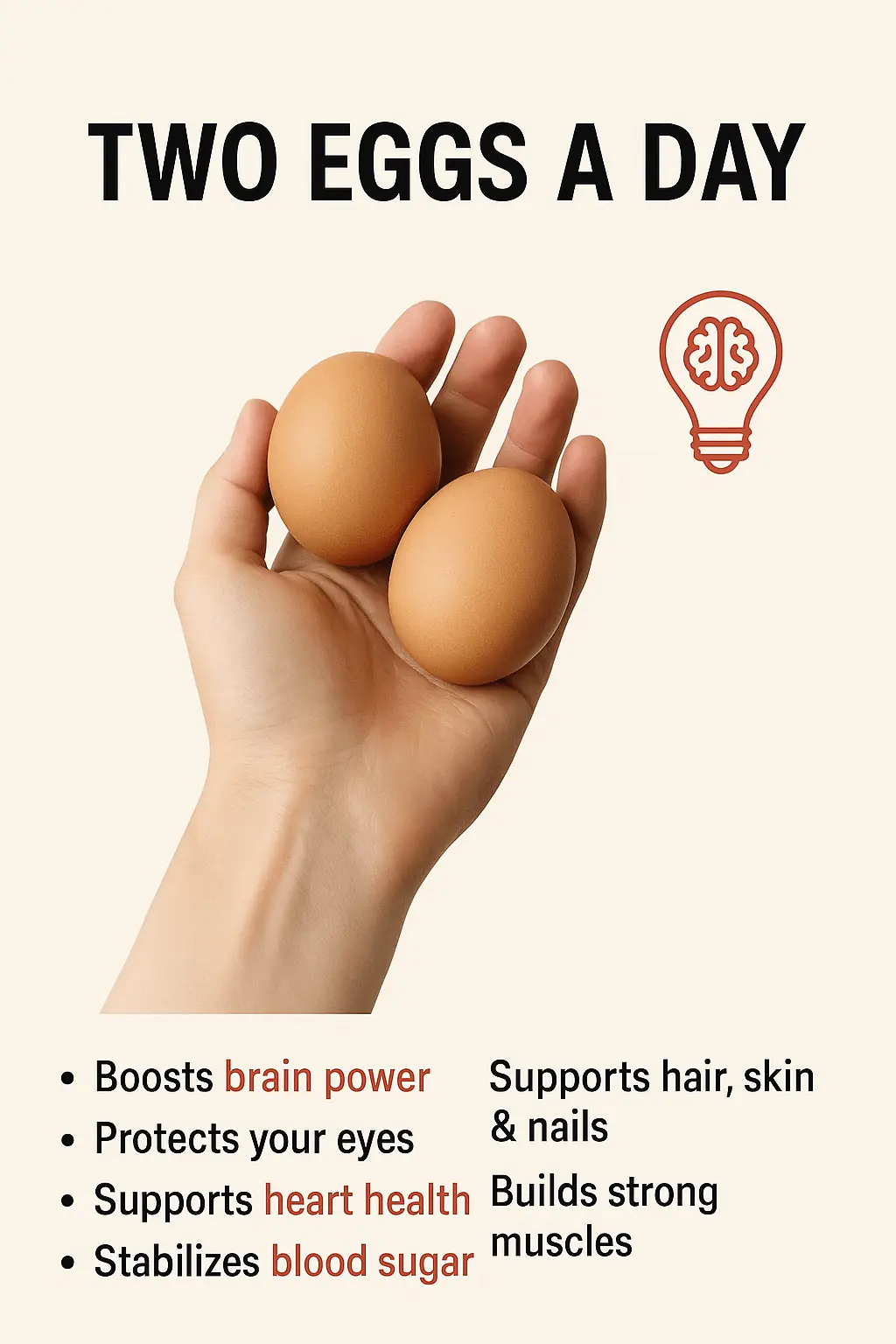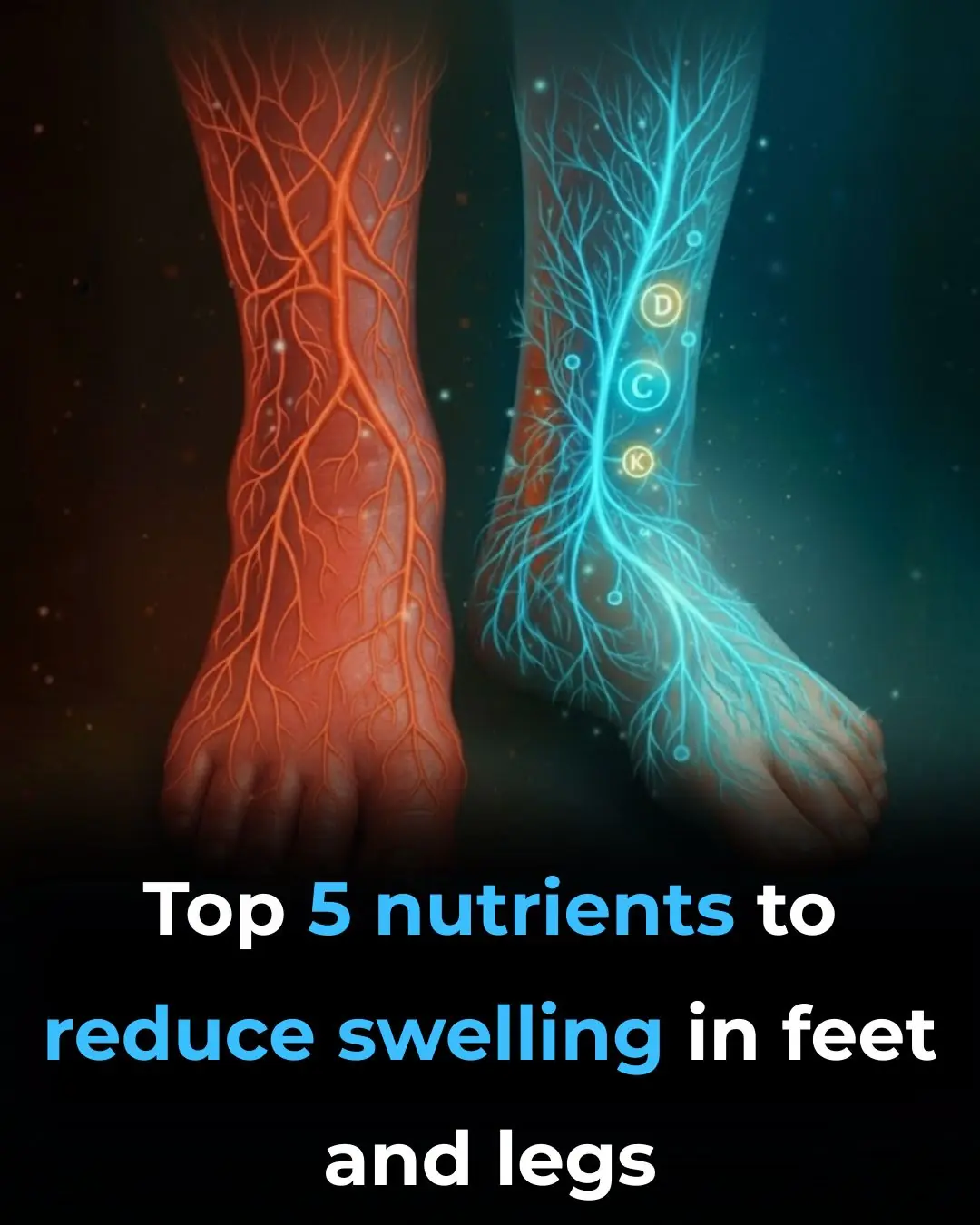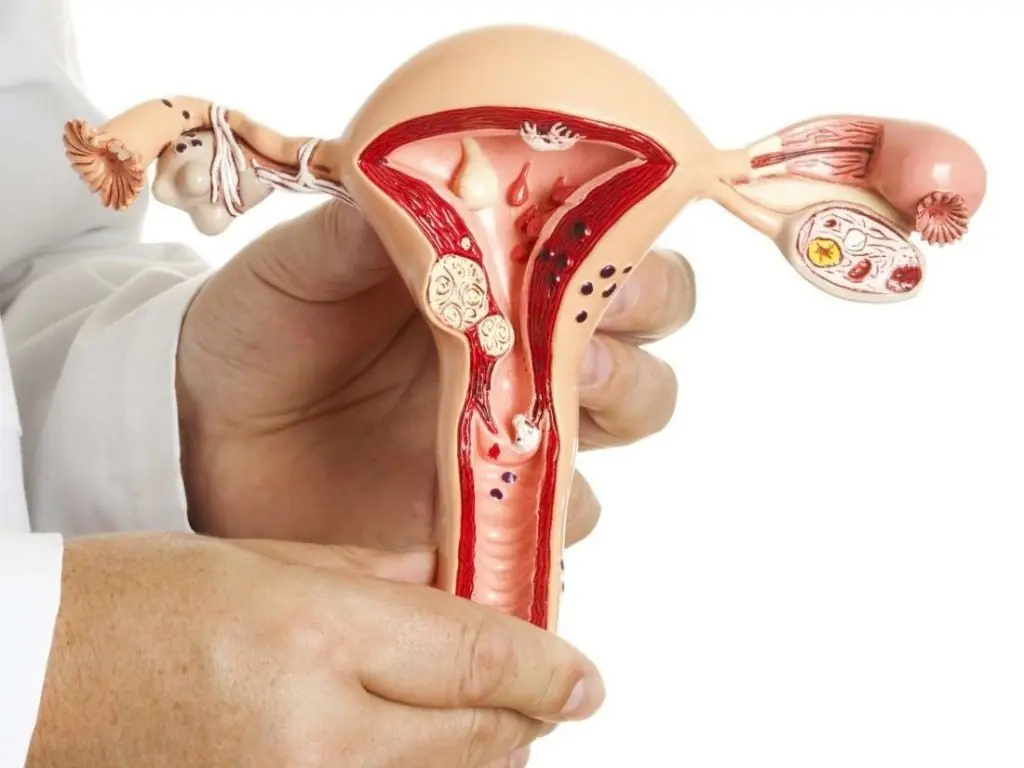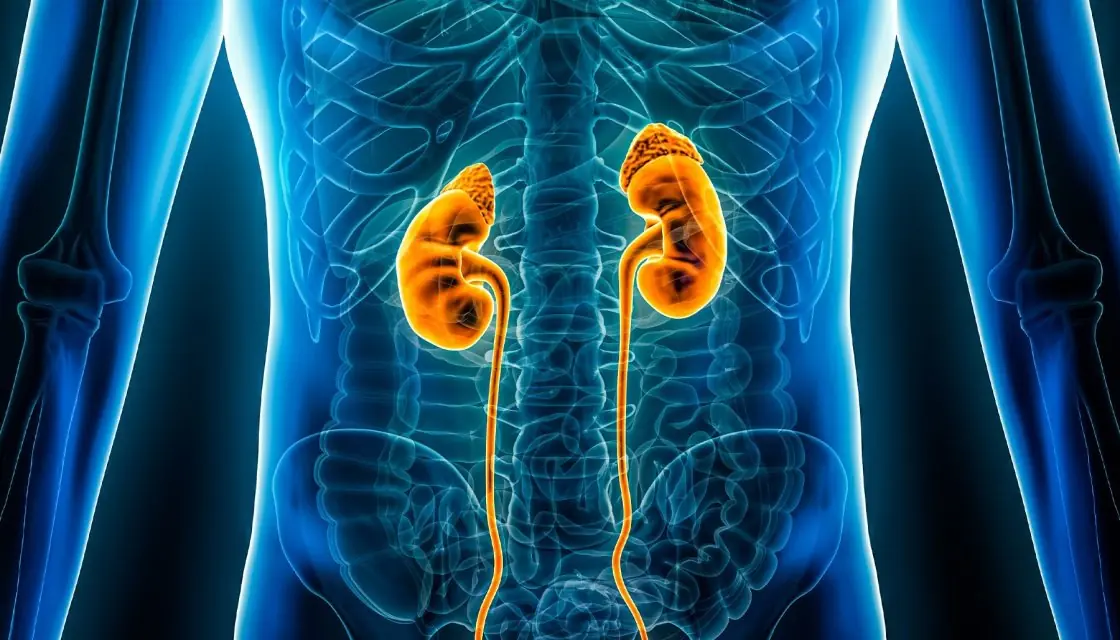
Proven Health Benefits of Eating Eggs Based on Evidence
For decades, eggs have been unfairly vilified due to their cholesterol content. The mainstream media has often focused on their potential drawbacks rather than their many health-promoting properties. Yet modern nutrition research paints a very different picture: eggs are one of nature’s most complete and nutrient-dense foods.
From supporting brain and eye health to aiding weight management and even reducing the risk of certain diseases, eggs offer benefits that extend far beyond the breakfast table. Let’s take a closer look at why this humble food might just be the nutritional powerhouse you’ve been overlooking.
Eggs Are Extremely Nutritious
Eggs rank among the most nutrient-rich foods on the planet. Each one is packed with high-quality protein, essential vitamins, minerals, and healthy fats that your body can readily absorb and use.
A single large egg (about 50 grams) contains:
-
Vitamin A: 5% of the RDA
-
Vitamin D: 10% of the RDA
-
Vitamin B12: 10% of the RDA
-
Vitamin B6: 5% of the RDA
-
Vitamin B2 (Riboflavin): 15% of the RDA
-
Selenium: 28% of the RDA
-
Phosphorus: 9% of the RDA
In addition, eggs contain meaningful amounts of vitamin E, vitamin K, calcium, zinc, iron, and folate.
A large egg provides about 72 calories, 6 grams of protein, and 3 grams of healthy fats — an ideal balance of macronutrients for sustained energy.
Simply put, eggs contain a little of almost everything your body needs, making them one of the few foods that can genuinely be called “complete nutrition.”
Eggs Promote Good Eye Health
Carrots aren’t the only food that’s good for your eyes — eggs deserve a spot in that conversation, too.
The yolk of an egg contains lutein and zeaxanthin, two antioxidants that help protect your eyes from harmful light and oxidative stress. These compounds accumulate in the retina, where they help prevent macular degeneration, cataracts, and other age-related eye conditions.
A study by Tufts University, published in the American Journal of Clinical Nutrition (1999), found that consuming egg yolks significantly increased blood levels of lutein and zeaxanthin.
It’s important to note that these nutrients are found in the yolk, not the egg white — so skipping the yolk means missing out on these benefits.
Eggs are also a good source of vitamin A, another critical nutrient for eye health. A deficiency in vitamin A causes over 500,000 cases of preventable blindness each year, according to research published in the Encyclopedia of Life Sciences.
Eggs Can Help You Lose Weight
Despite their reputation for containing fat, eggs can actually be a powerful ally in weight management.
A study published in the Journal of the American College of Nutrition found that people who ate a protein-rich egg breakfast felt fuller and consumed fewer calories throughout the day compared to those who had a carbohydrate-based breakfast, such as a bagel.
This feeling of satiety — fullness and satisfaction — can last for several hours, sometimes up to 36 hours in certain individuals. Protein helps regulate hunger hormones and stabilizes blood sugar levels, preventing the energy crashes that often lead to overeating.
Eggs also appear in numerous lists of belly fat-burning foods, as their nutrient density supports muscle maintenance while promoting fat loss.
Eggs Build Strong Bones and Muscles
Eggs are one of the few natural sources of vitamin D, a nutrient that works in harmony with calcium to promote strong bones and prevent conditions like osteoporosis.
They’re also an exceptional source of complete protein, meaning they contain all nine essential amino acids your body needs for tissue repair and muscle growth.
The protein in eggs is also highly bioavailable, meaning your body can use it more efficiently than protein from most other foods. This makes eggs particularly beneficial for athletes, older adults, and anyone looking to maintain lean body mass.
Eggs Boost Brain Health and Mental Sharpness
Another standout nutrient found in eggs is choline, a compound vital for brain development, neurotransmitter production, and memory function.
A study published in the American Journal of Clinical Nutrition involving 1,391 adults aged 36 to 83 found that those with higher choline intake performed better on tests of visual and verbal memory. Similarly, a British Journal of Nutrition study linked higher choline levels to better cognitive speed and executive function in older adults.
One large egg provides about 35% of your daily choline needs — which is significant, considering that around 90% of Americans don’t get enough choline, according to research published in The FASEB Journal.
In addition to choline, eggs contain other brain-supportive nutrients such as vitamin B12, omega-3 fatty acids, and selenium, which together help reduce the risk of Alzheimer’s disease and cognitive decline.
Eggs May Protect Against Heart Disease and Breast Cancer
Research from the University of North Carolina at Chapel Hill revealed that the choline in eggs supports both heart health and breast cancer prevention. Published in Nutrition Reviews (2009), the findings suggested that choline plays a role in regulating inflammation, maintaining healthy cell membranes, and supporting optimal cardiovascular function.
Eggs are also a source of antioxidants and healthy fats that promote balanced cholesterol ratios — increasing HDL (“good” cholesterol) while keeping LDL (“bad” cholesterol) in check.
Rethinking Eggs and Cholesterol
For much of the 20th century, eggs were considered unhealthy because they contain dietary cholesterol. However, modern studies consistently show that for most people, dietary cholesterol has minimal effect on blood cholesterol levels.
For example:
-
A 2006 Journal of Nutrition study found that older adults who ate one egg daily for five weeks improved their lutein and zeaxanthin levels without any rise in cholesterol.
-
A 2008 Upsala Journal of Medical Sciences study reported that participants eating one egg per day for a month saw no change in total cholesterol levels.
-
A 2013 study in Lipids showed that eating whole eggs increased HDL (good cholesterol) and improved its ability to protect against heart disease and stroke.
These findings show that, for most healthy individuals, moderate egg consumption supports — rather than harms — cardiovascular health.
How Many Eggs Should You Eat Each Day?
According to the Mayo Clinic, most healthy people can safely consume up to seven eggs per week without increasing their risk of heart disease. In fact, this level of intake may actually lower the risk of certain types of stroke.
However, individuals with diabetes should be more cautious. Some research indicates that eating seven eggs per week may significantly increase the risk of heart disease in diabetics. A Canadian Journal of Cardiology (2010) analysis found that diabetic participants who ate one egg per day were twice as likely to develop cardiovascular disease.
If you’re concerned about cholesterol, consider using a mix of whole eggs and egg whites. The yolk contains cholesterol but also carries most of the egg’s vitamins, minerals, and antioxidants — so don’t skip it entirely.
The Bottom Line
Eggs are far more than just a breakfast staple — they’re a nutritional powerhouse that supports nearly every system in the body. From improving brain and eye function to promoting strong muscles, bones, and a healthy heart, eggs truly earn their place on your plate.
When eaten in moderation as part of a balanced diet, eggs can help you stay fuller longer, sharpen your mind, and protect your long-term health.
So the next time you crack one open, remember: you’re holding one of nature’s most complete, affordable, and beneficial foods. 🥚
News in the same category


Ginger, Clove, and Honey: The Natural Trio Your Body Will Thank You For

Routine Smoothie Ingredient Causes Severe Food Pipe Obstruction In Health-Conscious Teen

The Drink That’s Gaining Attention in 2025: A Natural Blend to Support Blood Pressure, Diabetes, and More

Man Passed Away After Eating Eggs — Stop Eating Eggs This Way Immediately

Two Eggs a Day — Small Habit, Big Health Boost

Sweetgum’s Hidden Powers: 7 Surprising Health Benefits You Need to Know

Mix castor oil and rosemary — the 7-day results will surprise you

Top 5 Nutrients to Reduce Swelling in Feet and Legs

5 Powerful Vitamins That Help Stop Acid Reflux Naturally

Woman Left with Swollen Lip After Centipede Bites Her in Sleep

Unlock Baking Soda’s Hidden Powers Today

Flush the toxins silently damaging your kidneys — with these 13 powerful cleansing foods

The #1 silent sign your kidneys are in trouble (and it’s not your urine)

A 30-year-old man suddenly suffered kidney failure: 5 daily habits that silently destroy the kidneys

Eating fish in a way many people believe to be highly nourishing, the young woman ended up with premature ovarian failure and a body full of mercury

Papaya Seeds: A Powerful Remedy for Liver Health and How to Use Them as a Pepper Substitute

He drank hot tea every day. The results of his health check left him stunned

IF YOUR BODY SHOWS THESE EARLY WARNING SIGNS YOU NEED TO GET YOUR KIDNEY CHECKED FAST
News Post

Reverse Skin Aging With Cloves & Baby Oil

Culantro: The Hidden Gem of Your Garden

Ginger, Clove, and Honey: The Natural Trio Your Body Will Thank You For

Papaya Leaves and Onion Juice: The Secret Elixir for Rapid Hair Growth and Amazing Thickness

Routine Smoothie Ingredient Causes Severe Food Pipe Obstruction In Health-Conscious Teen

The Drink That’s Gaining Attention in 2025: A Natural Blend to Support Blood Pressure, Diabetes, and More

When you eat a banana with spots that is turning brown, here's what happens to your body

Man Passed Away After Eating Eggs — Stop Eating Eggs This Way Immediately

Two Eggs a Day — Small Habit, Big Health Boost

My toenail turned thick and yellow. Clinic can’t see me anytime soon. What is this?

Face Toner With Cloves & Rose Water: No Wrinkles, No Age Spots

Homemade Lemon Peel Cleaners: Two Powerful Recipes for a Spotless Home

Sweetgum’s Hidden Powers: 7 Surprising Health Benefits You Need to Know

Nourish & Revitalize: How Guava Leaf, Aidan Fruit, and Okra Support Women’s Health

Stick a Toothpick into Your Electric Kettle: Amazing Benefits Every Home Needs, Save Hundreds Each Year

Aloe Vera Super Remedy: Stronger Than Garlic, Lemon, and Fights Bacteria & Fungi Naturally

Never Clean Your Light Switches with Water: Here’s a Safe Trick to Make Them Shine Like New

1 herb being called a miracle for liver, blood sugar, and blood pressure

Mix castor oil and rosemary — the 7-day results will surprise you
